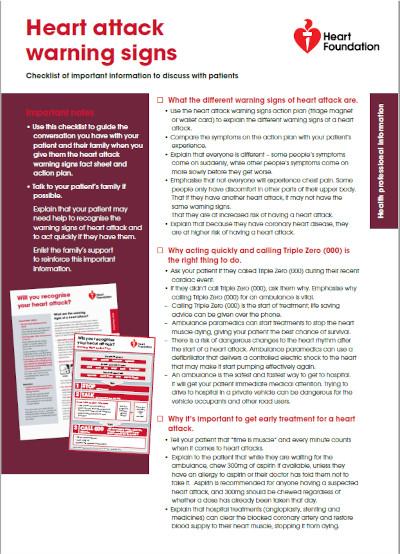Six Steps to Cardiac Recovery Terms / References
Click here to view references to material in this site, as well as other useful cardiac information.
Special | A | B | C | D | E | F | G | H | I | J | K | L | M | N | O | P | Q | R | S | T | U | V | W | X | Y | Z | ALL
E |
|---|
Emotional and social wellbeing | |
Exercise‐based cardiac rehabilitation for coronary heart diseaseExercise-based
cardiac rehabilitation for coronary heart disease Authors: Anderson
L, Thompson DR, Oldridge N, et al To access the article, click here | |
H |
|---|
Healing the heart after an acute cardiac eventHealing
the heart after an acute cardiac event Article published in InPsych Authors: Murphy
B, Higgins R, Clarke J, Rogerson M, Jackson A To access the article, click here | |
Health Info Net | |
Health literacy, does it make a difference?Article by Anne Johnson that provides contextual information about health literacy and its importance to health care, nursing, and health consumers. To access the article, click here | |
Healthy weight | |
Heart attackWhat is a heart attack : A heart attack can happen when a coronary artery becomes blocked by a build-up of plaque. The plaque can rupture, forming a blood clot, which means blood and oxygen cannot reach the heart. This damages the heart muscle, leading to a heart attack. Health professionals sometimes use different names for a heart attack, such as ‘myocardial infarction’, or ‘MI’ for short, ‘STEMI’ (more severe) or ‘non-STEMI’ (less severe).
| |
Heart attack warning signs
| |
Heart failure guidelines | |

